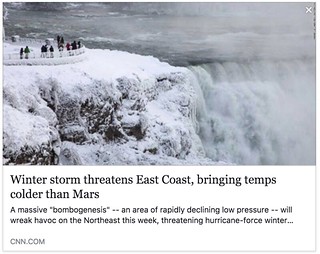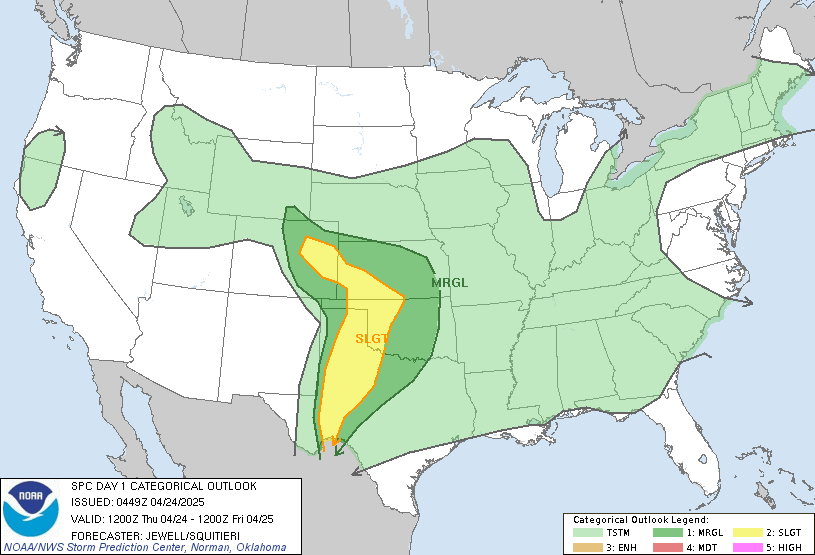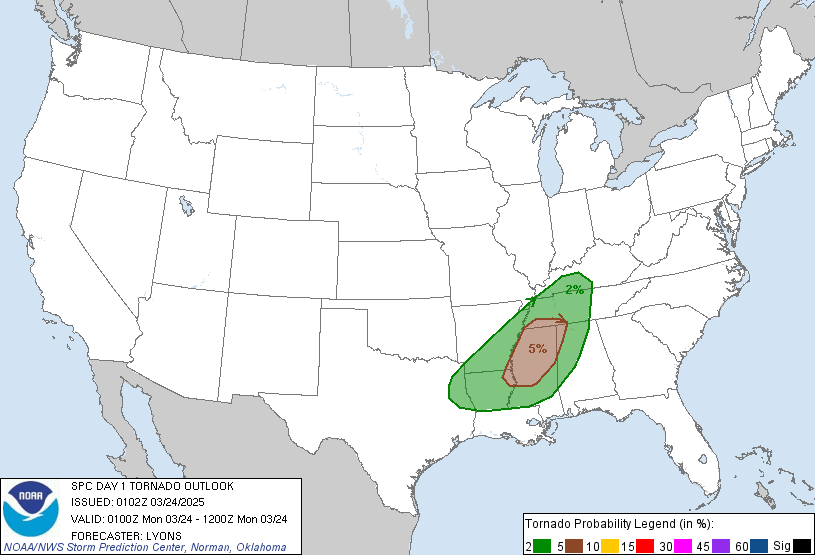
Catchy headline, no?
In my attempts to conjure up the most misleading, yet accurate statement, that was the best I could do. And yes, that is an accurate statement. Totally misleading. But accurate.
That seems to be the trend right now with social media headlines. Misleading, but accurate. And I’ll give them credit, the headline writers are getting creative. While the CNN headline to the right is catchy and not – necessarily – false, it is also misleading.
The temperature on Mars gets as cold as -195F near the poles. Yup, that reads almost 200 degrees BELOW zero. I doubt it will be anywhere near that cold in, like, Vermont. What about the equator of Mars? The warmest place! Oh, overnight – in the summer, no less – it can get down to -100F.
To borrow a local colloquialism, “Ain’t no way” it will be that cold in the Northeast. What about almost that cold? Not likely. Overnight lows will likely be in the teens below zero for some spots, but that’s about it.
So, then, how did they get that headline?
The Mount Washington Observatory (up at about 6,200ft and known for being VERY cold and windy) was -35F recently. And a recent temperature cherry-picked from data on Mars was -2F.
So, it is accurate that a random temperature from the Mount Washington Observatory was colder than a random temperature on Mars. But misleading. Mars is – on average – MUCH colder than Earth.
As for the “bombogensis” part, I’ll leave that for another post at a later date.
But let’s get back to my statement: ARCTIC BLAST PLUNGES MISSISSIPPI INTO ICE AGE-LIKE CONDITIONS COLDER THAN ONE OF THE MOONS OF JUPITER
Because that, too, is accurate. But misleading.
Research has shown that the moon, Europa, circling Jupiter may have liquid water under the ice covering its entire surface. Liquid water would mean the temperature would need to be around 32F.
Mississippi was colder than that last night. BAM. Headline accurate.
The Ice Age-like conditions?
The “Little Ice Age” around 1300 caused the region to become colder and drier than previously. And recently, this colder airmass has been colder and drier. It says Ice Age-like, not necessarily Ice Age-actual. BAM. Accurate headline.
Again, totally misleading, but not false.
So, as I always say, be careful when scrolling through social media. If you see an eye-catching headline, there is a reason. People are getting very creative in an attempt to get your attention.

